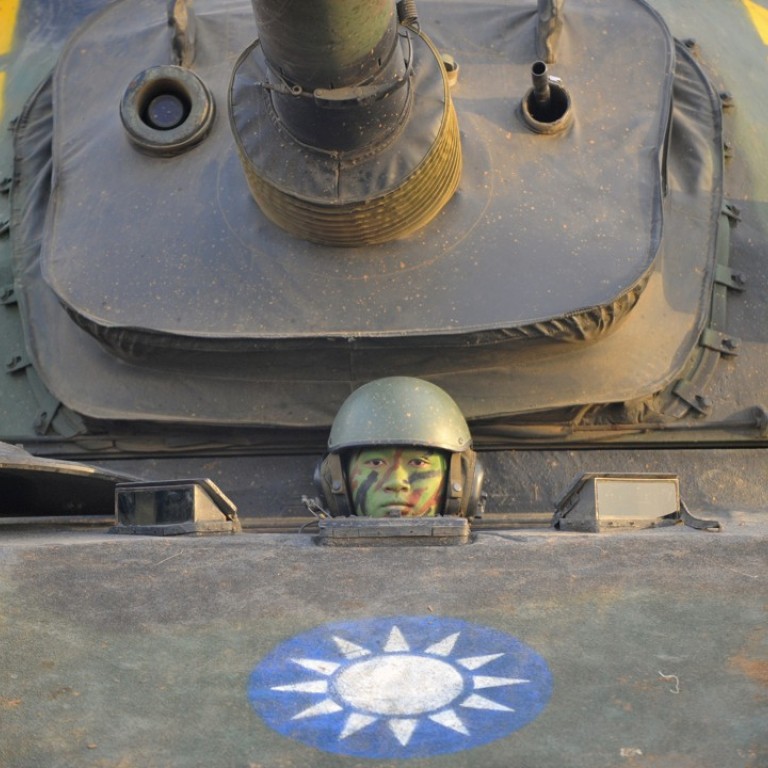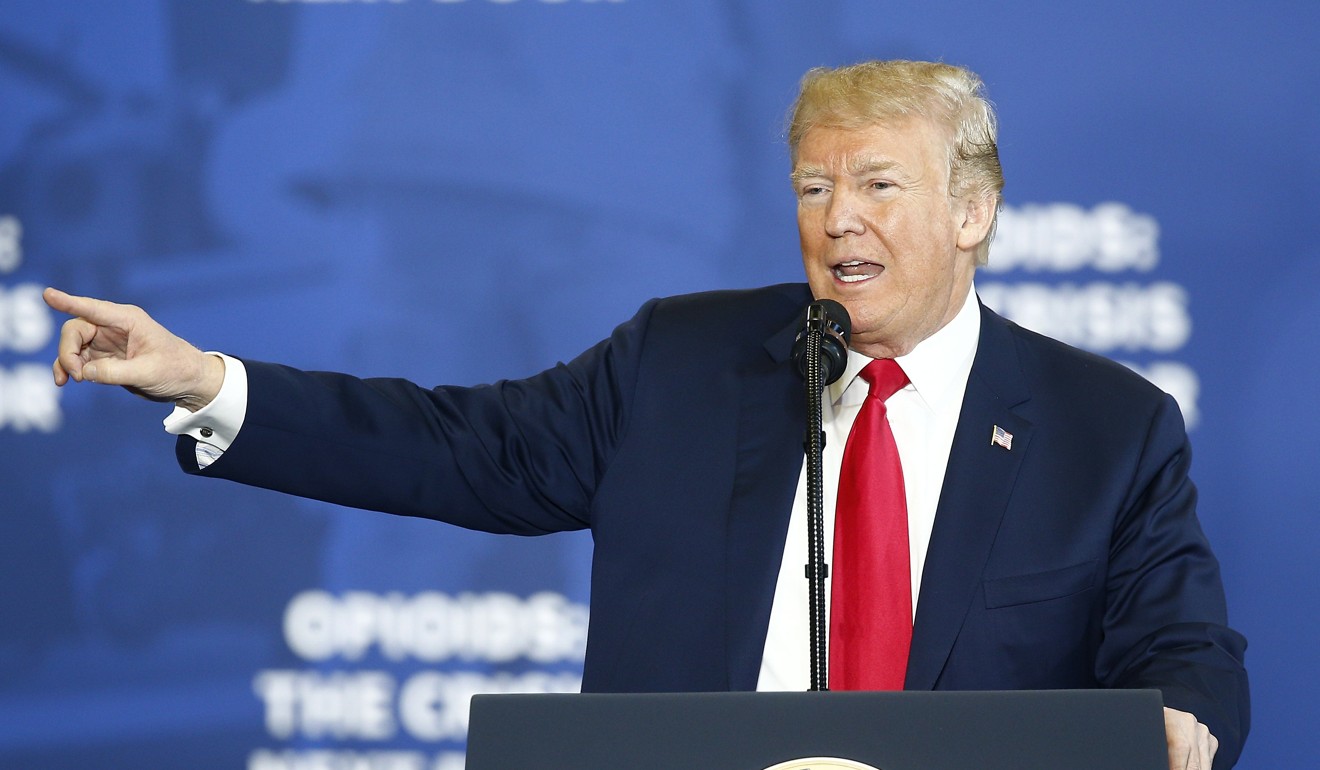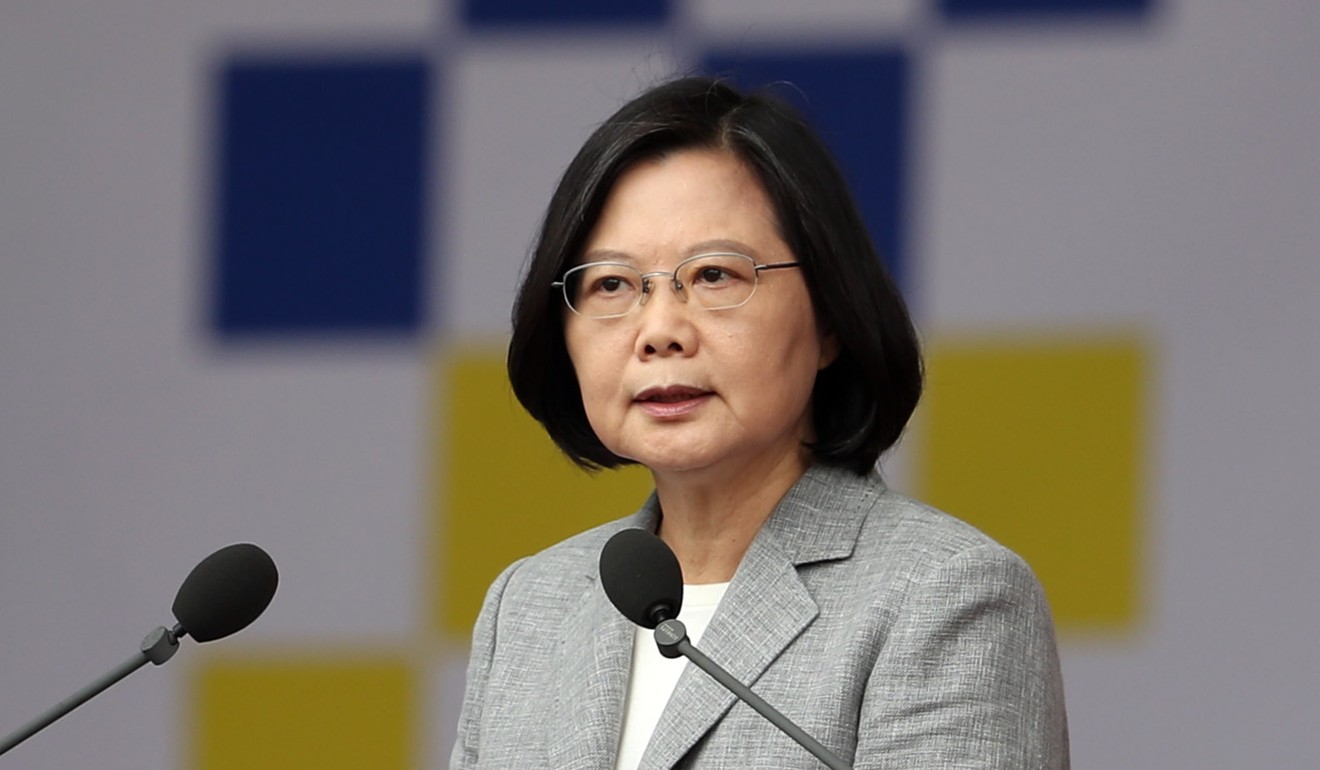
US, Taiwan military ties closer than ever as Donald Trump challenges Beijing
- Washington is approving arms deals at a much faster pace than before, as Taipei faces growing threats from mainland China
- Self-ruled island has also been releasing information on US Navy movements in Taiwan Strait that would previously have been kept quiet
US President Donald Trump’s pushback against Beijing’s military expansion and diplomatic strategy in the Indo-Pacific region has seen defence ties between Washington and Taipei become closer than ever in recent months.
Washington has been approving arms deals with Taipei at a much faster pace than under Barack Obama and George W Bush, while the self-ruled island has been making public US military movements near the Taiwan Strait – information that would not have been released under previous US administrations.
Since Trump took office in January 2017, both his administration and Congress have shifted from a policy of not enraging Beijing when it comes to Taipei, to a new policy of challenging the mainland government and focusing more on Taiwan’s defences.
But analysts say the government of Taiwanese President Tsai Ing-wen needs to evaluate the significance and impact of that new direction, given the hypersensitive relations between the US, mainland China and Taiwan.

Earlier this month, US Assistant Secretary of Defence for Asian and Pacific Security Affairs Randall Schriver confirmed that Washington was moving towards a “more normal foreign military sales relationship” with Taiwan.
That was a reference to Trump’s approval in September of a US$330 million deal to provide spare parts and other logistics for several types of the island’s military aircraft – a deal that came less than a year after the Pentagon agreed to sell US$1.4 billion of missiles, torpedoes and an early warning system to Taiwan.
Taiwan to get upgraded F-16V fighter jets after US arms sale approved
The US-Taiwan Business Council, which is based in the Washington area and has organised the annual US-Taiwan Defence Industry Conference since 2002, said approval of the deal was encouraging because it “appears to move away from the previous bundling method of Taiwan arms sales”.
It called on Washington to swiftly handle any new arms sale requests from Taiwan through inter-agency assessment that does not take into account Beijing’s potential reaction to a proposed deal.
Beijing – which considers Taiwan a wayward province to be reunified, by force if necessary – has been the main reason the US has taken a cautious approach to any arms deals or high-level exchanges with Taipei since Washington switched diplomatic recognition to Beijing from Taipei in 1979 and committed to observing the one-China policy.
Beijing has repeatedly warned Washington against seeking closer military ties with Taipei, and has protested against every arms deal they have made – including the most recent one – and any US-Taiwan exchange that was seen to have violated the one-China principle.
Behind the US’ smaller arms package to Taiwan lie bigger problems for China
Taiwanese officials and analysts say the latest deal indicates that Trump is more willing to give the island a faster response to its arms sale requests to help Taipei build up its defences in the face of growing military threats from mainland China.
“We greatly appreciate that the US is willing to review our military sales requests on a case-by-case basis, instead of the bundling approach carried out previously,” Deputy Defence Minister Shen Yi-ming said in a parliamentary meeting earlier this month.

Beijing has suspended exchanges with Taipei and staged a series of war games around Taiwan to intimidate the island since Tsai, of the independence-leaning Democratic Progressive Party, became president in 2016 and refused to accept its one-China policy. Beijing has also tried to isolate Taiwan internationally by poaching five of its diplomatic allies since Tsai took office.
“This has resulted in the Tsai administration seeking greater support from Washington. And with Trump seeing China as a strategic competitor instead of a partner, developing closer ties and helping to boost Taiwan’s defences have become part of his national security strategy in dealing with Beijing,” said Wang Kung-yi, a professor of political science at Chinese Culture University in Taipei.
Since Trump signed into law the Taiwan Travel Act in March to allow top-level officials to visit the island, US-Taiwan military ties have become even closer, Wang said.
Hundreds of US arms dealers and former US military officials travelled to Taiwan for the first-ever defence industry forum jointly held by the US-Taiwan Business Council and Taiwan Defence Industry Development Association in the southern city of Kaohsiung in May.
That came a month after Trump agreed to issue the marketing licence required for US manufacturers to sell Taiwan the technology it needs to build eight submarines. That project had been stalled since then-president George W Bush approved the sale in 2001.
Since July, at least four US warships have risked further escalating tensions by passing through the Taiwan Strait in freedom of navigation operations to challenge Beijing over its military expansion in the Indo-Pacific region – particularly the disputed South China Sea.
On two occasions, when the US Navy vessels were still in transit, Taiwan’s military issued a statement – on July 7 and again on October 22 – about the destroyers’ movements in the Taiwan Strait.
Pentagon sends two US warships through Taiwan Strait, risking fury from Beijing as tensions remain high
Analysts said Taiwan did not usually release information on such operations to avoid angering Beijing, but that has changed under Trump’s strategy of confrontation with China as tensions mount over trade, security and strategic issues.
Calling the transit a “smart move”, Ian Easton, a research fellow with the US-based think tank Project 2049 Institute, said it appeared Washington and Taipei had decided to publicise the ships’ passage to send a clear message to Beijing that the Taiwan Strait was international waters, and that the US and Taiwan would cooperate and not hide their activities there.
Meanwhile, media reports have said the US Indo-Pacific Command plans to hold war games in the Taiwan Strait and the island’s military would be asked to join the US in the drill.
Analysts, however, said regardless of whether the drill happened, military ties between the US and Taiwan had already become much closer than at any other time.
“But it is necessary for the Tsai government to review the significance behind such a change, including whether Taiwan is just Trump’s pawn in dealing with the mainland, and how such a change would impact cross-strait relations as well as the highly complex US-Taiwan-China ties,” said Arthur Ding, an associate research fellow at the Stockholm-based Institute for Security and Development Policy.

